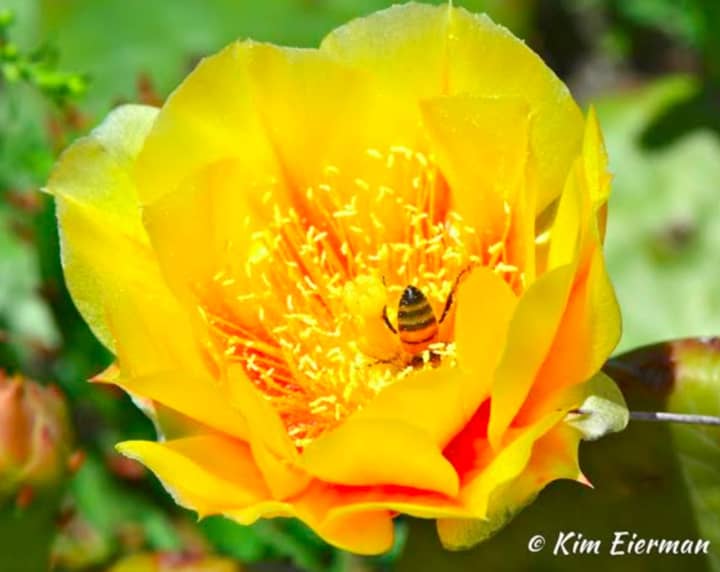Asclepias exaltata (Poke Milkweed)
Most milkweeds require full sun to grow well, but those of us with shadier gardens have an alternative - Poke Milkweed, which is happiest in dappled sun at the woodland edge. Large clusters of fragrant white flowers appear on this graceful plant that typically grows 3 to 5 feet tall. Milkweeds are not just for Monarchs – in addition to being the required larval food for Monarch caterpillars, milkweeds are important forage plants for many pollinators. Poke Milkweed is irresistible to bees and butterflies.
Eryngium yuccifolium (Rattlesnake Master)
The sword-shaped, blue-green leaves of Rattlesnake Master are interesting enough – but then come the unusual bristly flower globes that rise above the foliage. These fragrant “blooms” attract an enormous array of pollinators. Like many other plants in the Carrot Family, Rattlesnake Master attracts a variety of natural enemies – insects that are nature’s form of pest control. Grow this plant in full sun in average garden soil with good drainage. Often reaching 4 to 6 feet, Rattlesnake Master will add unique structure to your garden for most of the growing season. Native to much of the Southeast up to New Jersey, Rattlesnake Master grows well in our area – see it on The High Line in New York City.
Opuntia humifusa (Eastern Prickly Pear Cactus)
It may be hard to believe, but this species of Prickly Pear Cactus is native to much of the Northeast. Perfect for a hot and dry spot, especially in a sunny rock garden, this plant sports large, showy yellow flowers accented by orange “nectar guides” that entice many native bee species. Both the pads and the prickly pear fruit are edible to humans, but make sure to clean them properly to eliminate the spines. Prickly Pear is deer resistant, but Bambi may sometimes discover the tasty fruit before you do.
Pycnanthemum muticum (Short-Toothed Mountain Mint)
All of our native Mountain Mints are extremely attractive to pollinators and natural enemies. In a study by Penn State Extension, 78 pollinators visited Short-Toothed Mountain Mint within a two-minute period! Unlike culinary mints, such as Spearmint and Peppermint, Short-Toothed Mountain Mint will not monopolize your yard – it spreads via rhizomes but is not overly aggressive, and is easily pulled. The plant’s silvery bracts surround small pinky-white flowers that can last up to six weeks. Plant this aromatic, deer-resistant native in full to part sun with average to moist soil.
When trying to find these more unusual native plants, you will often have the best luck at local native nurseries and native plant sales. Also ask your favorite garden center to stock more native plants – our challenged pollinators need them!
Kim Eierman, a resident of Bronxville, is an environmental horticulturist and Founder of EcoBeneficial. She teaches at the New York Botanical Garden, Brooklyn Botanic Garden, The Native Plant Center and Rutgers Home Gardeners School.
Click here to follow Daily Voice North Passaic and receive free news updates.


